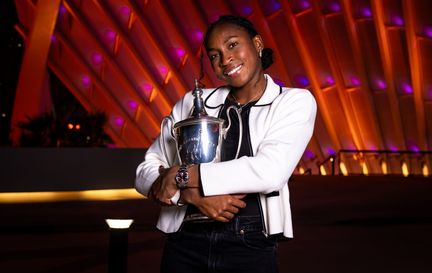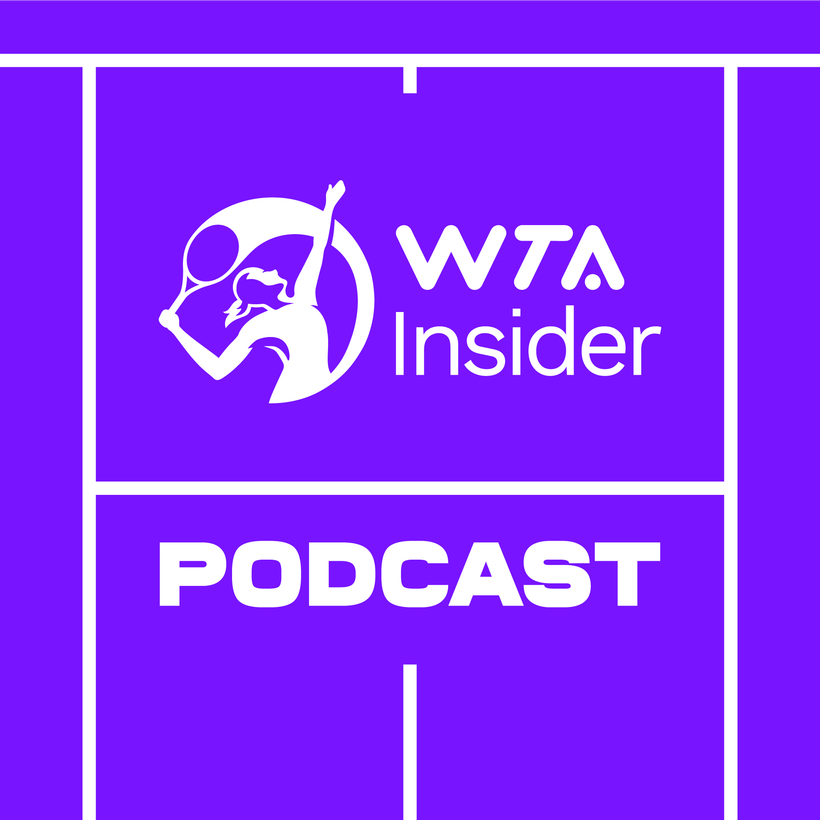NEW YORK, NY, USA - Ahead of Serena Williams's 16th US Open quarterfinal against No.18 seed Wang Qiang, the 23-time Grand Slam champion's coach Patrick Mouratoglou was confident about her prospects for the remainder of the tournament.
"As I said before the tournament, I felt she was getting better and better," he explained to the press after Williams's 6-3, 6-4 fourth-round defeat of No.22 seed Petra Martic. "I was very happy with today's match and also with the previous one, actually. I have no concerns at all. I'm quite happy."
Gallery: US Open 2019: Bencic, Andreescu seal quarterfinal spots
After extending her dominance over Maria Sharapova in emphatic fashion in the first round, Williams has exclusively faced variety-heavy finesse players with a wide range of shots in their repertoires: wildcard Catherine McNally, Karolina Muchova and Martic are all renowned for their net skills in particular. Mouratoglou said that the American's ability to deal with these tricky customers had been particularly impressive.
"What I saw the first week, I didn't see only great performances," he said. "Some matches were tough. The match against Caty McNally was difficult, I think, also because Caty played really well and put a lot of pressure on Serena with a game that is quite unusual. It's not easy to feel comfortable playing players who play that type of game, because you're just not used to it. But she found a way to win, ended up the match quite well, and I think the level is rising."
What a fight @serenawilliams ! Way to dig deep.
Credits to @catymcnally for a great performance. @usopen pic.twitter.com/oP4tUo7l7J— Patrick Mouratoglou (@pmouratoglou) August 29, 2019
Mouratoglou also discussed two of Williams's most significant challenges since returning from maternity leave: the physical and emotional changes in becoming a mother, and a 0-3 record in Grand Slam finals over the past year-and-a-half.
"You know it's a big thing, a big transformation for the body," the Frenchman said of motherhood. "It's also a new responsibility, so I think it takes time to come back to the person you were before, especially physically for a top athlete... I think the first months are very difficult after the birth. That was the case for Serena. I don't know if it's always like that. I can understand that it can be like that for most of the mothers.
"She was feeling guilty - she was feeling that the baby needed her a lot because a young baby is very weak, and I think as a mother you feel like you need to be here all the time to protect the baby. Whenever she was not here because she needed to practice or to play a match, she was feeling guilty. And I think it was the first months it was hurting her a lot, because tennis has always been her priority, at least since 2012. And suddenly taking care of the baby becomes a priority for the reasons that I understand. Not that it's not a priority now, but now she feels less guilty about leaving her to play tennis, because she feels she doesn't depend as much on her as when she was really small."
With Williams's daughter Olympia now two years old, Mouratoglou argued that for this reason - as well as the former World No.1 recovering from the injuries that have plagued her this year - he feels time is still on her side. "I feel that time works for her, and I know it can sound strange because she's not very young," he said. "I feel she's moving better now than she was a few months ago."
Williams's health permitting her to reach full fitness will also be key to snapping her three-match losing streak in Grand Slam finals, said Mouratoglou. "Clearly the goal is not to lose in final," he stated. "My opinion on that is that clearly a final is not a match like any other. I know she's played a lot in her life, but still, there is a special emotion in a final, especially when you're supposed to win - and when you are called Serena you are supposed to win all the time. So it's not the same as for another player playing a final, an unexpected player in the final, for example, or anyway, so the pressure is very important, even more when you play to beat the record of all times.
"And when you have emotions and you're tighter than usual, it's important for you to have a plan B, to feel like, OK, if this doesn't work I can do other things. And when you're not fit, you don't have a plan B. I mean, the level of stress goes to another level, because you have no other option and the option 1 is not working.
"That's why I thought that it was very important for her to get back again to her best shape to have the movements, because when you're able to move well, even if you don't hit the ball the way you want, you can still put the ball in play, rally, and slowly but surely get your rhythm back. And also you have other options.
"That's my view on what happened in the past - I have seen her very tight or nervous in the past in other Grand Slam finals, not playing well but winning because she had many other options that she didn't have the last three."
Those options, Mouratoglou said, will be key to Williams's continued progress at Flushing Meadows. Regarding the specter of yet another injury rearing its head after Williams landed heavily on her ankle during her win over Martic, Mouratoglou revealed that the No.8 seed "doesn't feel much pain", but the extent of its severity was not known yet.



![[3] Coco Gauff d. [7] Zheng Qinwen 3-6, 6-4, 7-6(2), WTA Finals Riyadh F (3:04). Gauff clinched her first WTA Finals title by winning the second-longest final of the year. It was also the longest final at the WTA Finals dating back to 2008.](https://photoresources.wtatennis.com/photo-resources/2024/11/09/4a2a1712-283c-4996-a572-6682f3eeca0c/GettyImages-2183155727.jpg?width=451&height=268)



